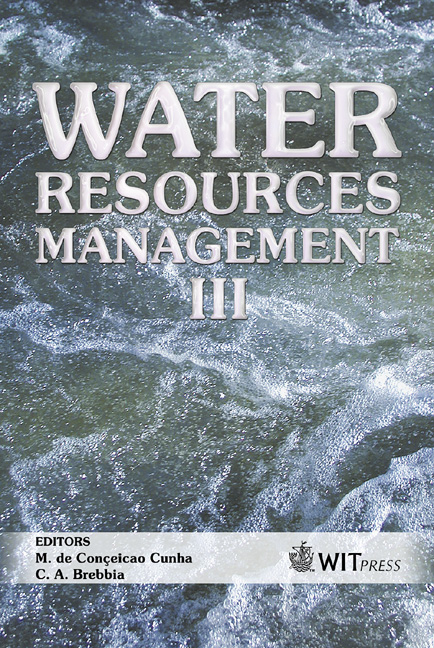Groundwater Quality In The Suburban Area Of The City Of Tijuana, Mexico
Price
Free (open access)
Transaction
Volume
80
Pages
6
Published
2005
Size
357 kb
Paper DOI
10.2495/WRM050221
Copyright
WIT Press
Author(s)
F. T. Wakida, E. Ponce-Serrano, E. Mondragon-Silva, E. García-Flores, D. N. Lerner & J. G. Rodríguez-Ventura
Abstract
Over the last few decades the population growth of the city of Tijuana has had an annual rate of 6% and the city is estimated to reach a population of 3.5 million people by the year 2020. This growth has placed great demand on the regional water resources. Therefore, it is important to know the actual state of local groundwater quality to protect and manage this resource. The objective of this study was to evaluate groundwater quality in a suburban area of the city of Tijuana, Mexico. Seven hand-dug wells and two surface water points were sampled during a period of 8 months for physicochemical parameters, bacteria and heavy metals. The results have shown that the groundwater quality of the aquifer is poor because of the number of pollution sources that includes horticultural activities, on site sanitation, infiltration from a polluted stream and domestic rearing. High nitrogen concentrations suggest that the main source of contamination is wastewater infiltration and the manure used in the horticulture activities. Based on the results, groundwater in this aquifer is not suitable for human consumption unless it is treated, because the concentration values for chemical and microbiological parameters are higher than the Mexican drinking water standard. Keywords: urban aquifer, suburban area, groundwater pollution, nitrogen, Tijuana, Mexico.
Keywords
urban aquifer, suburban area, groundwater pollution, nitrogen, Tijuana, Mexico





